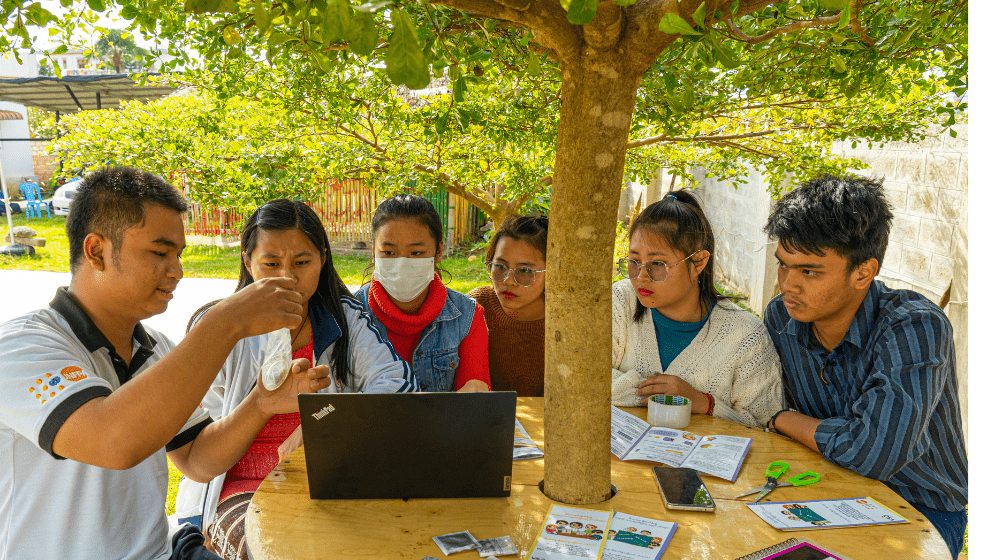“Young people in our community experience early pregnancy and unwanted pregnancy due to the lack of knowledge
In Myanmar, approximately 1.4 million adolescent girls are or have been married and 600,000 of them have begun childbearing. While adolescent girls make up 20% of the country’s population, they have a very limited understanding of sexual and reproductive health. The 2014 Myanmar Population and Housing Census Report indicated that nearly 300 women die in pregnancy and childbirth for every 100,000 live births.
COVID-19 pandemic and political crisis exacerbate young people’s access to sexual and reproductive health information. Since 2022, with support from UNFPA, VSO Myanmar has implemented a sexual and reproductive health and rights project
Dr. Khun Thiha, Health Technical Advisor of VSO Myanmar said, “We advocate and deliver knowledge on sexual and reproductive health and rights to the parents, teachers, community leaders and young people between 15 to 35 years of age, including those with disabilities and LGBTQ populations.”
Sexual and reproductive health topics are still considered as a taboo subject in Myanmar. Yu Yu Khine, a youth ambassador in Southern Shan said, “We often face strong objection from the local people when we go into the community for the sexual and reproductive health awareness raising for young people. Some people think this topic is only for the adult, but not for young people, holding the belief that this kind of information can be found easily and no need of such awareness raising.” These misbelief and misperception hinder young people to access right information on sexual and reproductive health when they need.
Young people across the country experience stress and anxieties due to COVID-19 pandemic and political crisis. Taking advantage of the peer-to-peer groups, VSO also managed to include well-being sessions as psychosocial support for the young people. These young people can also have to one-to-one emotional support sessions from trained practitioners if required. During the sessions, young people have opportunities to share their thoughts and issues that they experienced and listen to good practices and suggestions of others.
What is unique about this peer-to-peer model with the support from youth ambassadors is that young people can learn sexual and reproductive health and rights from their own community youth as their friends, brothers and sisters which encourages trust and effectiveness in communication. It is the key advantage of this peer-to-peer model and, youth ambassadors play an essential role in this. Their support helps to reduce the youth related sexual and reproductive health issues in the community and prevent unwanted pregnancy and maternal mortality among young people.
Regardless of challenges and barriers for sexual and reproductive health awareness raising in the community, youth ambassadors strongly commit to support the community young people in the communities and build the wider local network through peer-to-peer network.
“As youth ambassadors, our work is not only to educate young people about sexual and reproductive health, but also help them understand their rights and empower their potentials. I am very proud to serve the community as a youth ambassador,” Yu Yu Khine, local youth ambassador said.
The United Nations sexual and reproductive health agency, UNFPA supports the activity under the Health, Empowerment and Rights (HER) Programme funded by Global Affairs Canada.


